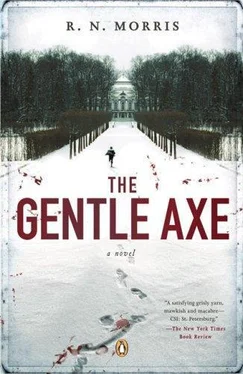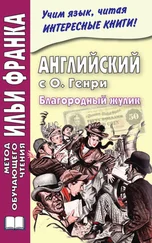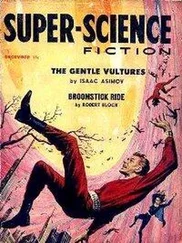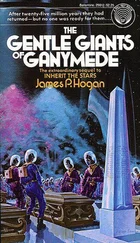R. Morris - The Gentle Axe
Здесь есть возможность читать онлайн «R. Morris - The Gentle Axe» весь текст электронной книги совершенно бесплатно (целиком полную версию без сокращений). В некоторых случаях можно слушать аудио, скачать через торрент в формате fb2 и присутствует краткое содержание. Год выпуска: 2008, ISBN: 2008, Издательство: Penguin Books, Жанр: Исторический детектив, на английском языке. Описание произведения, (предисловие) а так же отзывы посетителей доступны на портале библиотеки ЛибКат.
- Название:The Gentle Axe
- Автор:
- Издательство:Penguin Books
- Жанр:
- Год:2008
- ISBN:9780143113263
- Рейтинг книги:5 / 5. Голосов: 1
-
Избранное:Добавить в избранное
- Отзывы:
-
Ваша оценка:
- 100
- 1
- 2
- 3
- 4
- 5
The Gentle Axe: краткое содержание, описание и аннотация
Предлагаем к чтению аннотацию, описание, краткое содержание или предисловие (зависит от того, что написал сам автор книги «The Gentle Axe»). Если вы не нашли необходимую информацию о книге — напишите в комментариях, мы постараемся отыскать её.
The Gentle Axe — читать онлайн бесплатно полную книгу (весь текст) целиком
Ниже представлен текст книги, разбитый по страницам. Система сохранения места последней прочитанной страницы, позволяет с удобством читать онлайн бесплатно книгу «The Gentle Axe», без необходимости каждый раз заново искать на чём Вы остановились. Поставьте закладку, и сможете в любой момент перейти на страницу, на которой закончили чтение.
Интервал:
Закладка:
“Yes.”
“Then, please, be so good as to turn over your card.”
Porfiry turned over the queen of spades.
“No match,” said his opponent. “No matter. We keep going.”
He dealt two more cards, the six of diamonds followed by the ten of diamonds. Again Porfiry’s card, the jack of clubs, failed to produce a match.
The man in the frock coat nodded grimly and dealt two more cards, neither of which was matched by Porfiry’s.
The two players stared unflinchingly into each other’s eyes, as if this would have a bearing on the cards they dealt. Porfiry’s hands shook. His palms began to sweat. And yet he did not want the game to end. In each turning of a card, he felt the heavy hammering of his heart, reminding him with renewed insistence that he was alive. Whatever the outcome of the game, he knew he would miss this feeling.
It was about ten deals later when Porfiry turned over a seven of clubs, matching the seven of hearts on top of the left-hand pile of cards.
“I win, I believe,” said Porfiry. It was as he had expected. His delight at winning was tempered by regret that the game was over. He wanted to play again.
The other man nodded, admitting defeat. “To the left, over there, past that woman with the cough. There is a door. It leads to the annex. Virginsky lodges in there, on the ground floor, with the cabinetmaker Kezel.”
After the tension of the confrontation, the mood returned to the earlier one of brash amusement. The laughter now, however, was at the expense of the man in the frock coat, who took in good humor their jibes at his failure to secure them a fresh bottle of vodka.
Porfiry left the table reluctantly, almost disappointed; depressed, despite his success. He had the sense that they had finished with him. And all that he had to turn to was his duty.
The name Kezel was chalked on the door.
Kezel himself was not in, but his wife-a silent, cowed woman whose face bore the marks of her last beating-showed Porfiry to the door of the tiny cell occupied by the student Virginsky. He was as the pawnbroker had described him, pale and shabbily dressed. He was also, Porfiry noted, underfed to the point of stupor. His glazed eyes were sunk in dark circles of exhaustion. He was shivering. It struck Porfiry that Virginsky showed no sign of surprise at his arrival. It was almost as if he had been expecting him. But perhaps he was simply incapable of registering any emotion. As soon as Virginsky admitted Porfiry to his room, he fell back on the bed. As there was nowhere for Porfiry to sit other than on the bed, he remained standing. He sniffed the air, which was-unexpectedly-scented.
Porfiry looked down at the pitiful figure of the young man and felt the stirrings of a deep anxiety. He couldn’t help being reminded of the student double-murderer whose case had so engaged him the year before.
“You are Pavel Pavlovich Virginsky?” His voice sounded harsher than he had meant it to.
“Yes.”
“Allow me to introduce myself. I’m Porfiry Petrovich. I’m an investigating magistrate. I’ve come here from the Department of the Investigation of Criminal Causes.”
Virginsky made no comment.
“Do you recognize these books?”
Virginsky glanced apathetically at the books and nodded.
“Do you know to whom they belong?”
Again Virginsky nodded. “How did you get them?” he roused himself to ask, his voice hoarse and lethargic. But Virginsky showed no real curiosity about the answer. In fact, he closed his eyes.
“I redeemed them from Lyamshin’s,” said Porfiry.
“Impossible,” said Virginsky, without opening his eyes.
“Why do you say that, Pavel Pavlovich?”
“Because I have the ticket.”
“You have the ticket?”
Virginsky nodded.
“Please, this is very important. Could you show me the ticket?”
Virginsky finally opened his eyes. For a moment, Porfiry saw in them an engaged intelligence that eased his fears for the student. But this look did not last. The eyes swam. An instant of confusion gave way to simple blankness.
“Pavel Pavlovich,” said Porfiry sternly. “When did you last eat something?”
“Eat?”
“Yes, eat.”
“I…do you have food?”
“No. But I can get some.”
Virginsky managed four rasps of empty laughter. It was as if he were laughing at the folly of a man who promised him infinite riches.
“I have only to talk to your landlady.”
“She…I owe…rent.”
“Of course, but it is a question of common humanity. She will not let you starve.”
“Her husband.” Virginsky raised one hand hopelessly and let it fall.
“I understand,” said Porfiry, laying down the books on the edge of the bed. “I will arrange it.”
Porfiry found Madame Kezel in the kitchen stirring a large pot of broth. She flinched away from his gaze.
“That boy,” he began. “How can you let him starve when there is food in the house?”
“My husband forbids it.”
“But your husband is not here.”
“He will find out.”
“How will he find out?”
“He always finds out. Pavel Pavlovich tells him.”
“How much does Pavel Pavlovich owe you?”
“My husband knows.”
“If Pavel Pavlovich paid all the rent that is due, your husband would allow you to feed him?”
The woman nodded.
“I am a magistrate. I undertake to pay Pavel Pavlovich’s debts to you and your husband. Please, in God’s name, take him a bowl of broth.”
“My husband has forbidden me to go into his room.”
“Give me the broth, and I will take it to him.”
“You are a magistrate, you say?”
“Yes.”
“And you will leave money?”
“Yes.”
Madame Kezel fetched a bowl from a cupboard and ladled in the brown fatty broth. She handed it to Porfiry with a spoon and a crust of stale bread.
“If you could ask Pavel Pavlovich not to express his gratitude to my husband…”
“I understand.”
“Or to myself. There is no need for his gratitude.”
Porfiry carried the broth back to Virginsky’s room. The student lay with his eyes closed, his face torpid and drained. But gradually his expression changed as he became aware of the savory aroma. His nostrils twitched. He licked his lips and swallowed. A smile showed. It seemed he was dreaming of a marvelous feast. Then the point came where he was able to disassociate the smell of food from his dream, and he understood that this tremendous, overwhelming sensation was real. A look of wonder, almost of fear, showed as he finally opened his eyes and looked around.
“Can you sit up?” asked Porfiry.
Virginsky lifted himself up on his elbows and allowed Porfiry, now perched next to him on the bed, to spoon-feed him. Every now and then he took a mouthful of the bread, which he was only able to chew by soaking it well in the broth. By the time he had eaten the last spoonful, he had regained his strength enough to wipe the last remaining piece of bread around the bowl.
Porfiry set the bowl aside on the floor. There was nowhere else to put it. Virginsky gave a small burp of satisfaction. “Who are you?” he asked Porfiry, evidently fortified by his meal.
“I have told you. I am Porfiry Petrovich. We were talking about the books.” Porfiry indicated the pile on the bed.
“My books!” exclaimed the student in delight.
“They are yours?”
“Yes. But how did you get them?”
“I have already told you. Don’t you remember?”
Virginsky frowned. “Now I do remember, I think. But it doesn’t make sense.” Virginsky rose from the bed and stood swaying before reaching out to the wall opposite. The room was so small that he could touch any side from this spot in the middle. He lifted a loose flap of wallpaper, revealing a large empty hole beneath. This discovery seemed to shock him. Then a wry downward smirk twisted his face, and he started laughing. There was a warmth and richness to his laughter now, unlike the frail spasm that had gripped him earlier. “That bastard Goryanchikov,” he said at last.
Читать дальшеИнтервал:
Закладка:
Похожие книги на «The Gentle Axe»
Представляем Вашему вниманию похожие книги на «The Gentle Axe» списком для выбора. Мы отобрали схожую по названию и смыслу литературу в надежде предоставить читателям больше вариантов отыскать новые, интересные, ещё непрочитанные произведения.
Обсуждение, отзывы о книге «The Gentle Axe» и просто собственные мнения читателей. Оставьте ваши комментарии, напишите, что Вы думаете о произведении, его смысле или главных героях. Укажите что конкретно понравилось, а что нет, и почему Вы так считаете.












